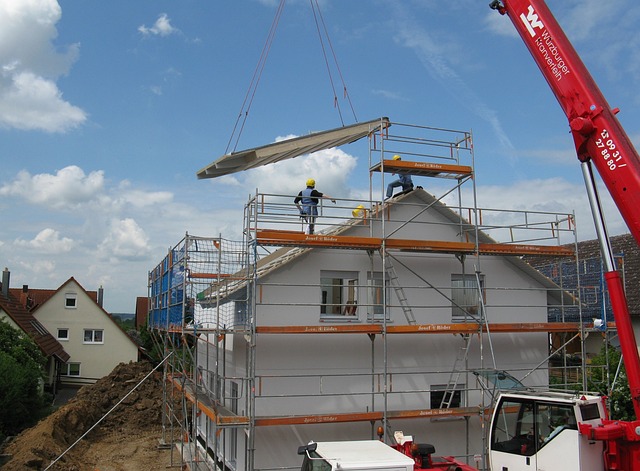When it comes to construction, proper estimation is key to ensuring a successful project from start to finish. Without precise estimates, projects can become costly and overrun the expected timeline. Many construction professionals lack a comprehensive understanding of how to properly assess accurate estimations for their projects, leading to poor results and delays.
Here, we present the ultimate guide to construction estimation that will provide construction professionals with the necessary knowledge and resources needed to make accurate estimations for their projects. The purpose of this guide is to assist you in quickly learning the proven methods of Royal Estimation to achieve successful outcomes promptly.
A Step-to-Step Guide For Construction Estimation:
Here is a step-by-step guide that can help you with the construction estimation process:
Understanding the Basics of Construction Estimation:
Construction estimation is the process of predicting the cost and resources required to complete a construction project. It involves analyzing all the components of a project, such as labor, materials, and equipment, and then determining how much time and money it will take to complete each task. Accurate construction estimates are essential for keeping projects on track and within budget.
Identifying Project Requirements:
Before you can begin estimating a construction project, you must first identify all the requirements that need to be met to complete it successfully. This includes understanding the scope of work, researching local building codes and regulations, estimating material costs, and determining labor requirements.
Collecting Data:
Once you have identified the requirements for your project, you must then collect data about materials, labor costs, equipment needs, permits, and any other related expenses that may be required.
This data can be collected from suppliers or contractors who are familiar with the specific needs of your project. It is important to collect accurate data so that you can create an accurate estimate for your project.
Calculating Costs:
Once you have collected all relevant data about your project’s requirements, you can begin calculating the costs associated with each component of the job. This includes labor costs per hour or day as well as material costs per unit or pound for items such as lumber or concrete blocks.
You should also factor in any additional expenses such as permits or rental fees for equipment into your calculations so that they are included in your final estimate.
Estimating Time Frames:
In addition to calculating costs associated with a construction project, it is also important to estimate how long each task will take to complete so that you can create a timeline for when certain tasks should be completed by. This will help ensure that deadlines are met and that projects stay on track within their budgeted time frames.
Accounting For Risks & Contingencies:
When creating an estimate for a construction project it is important to account for potential risks or contingencies that could arise during its completion such as weather delays or unexpected increases in material prices due to market fluctuations.
By factoring these potential risks into your estimates you can better prepare yourself if any issues arise during completing the job which could cause delays or increase overall costs associated with it.
Working With A Professional Estimator:
If this is your first time creating an estimate for a construction job, consider working with a professional estimator who has experience in this field.
They will be able to provide valuable insight into factors such as local building codes, pricing trends, and common pitfalls associated with certain types of jobs which could help save time & money in both short-term & long-term scenarios.
Creating An Accurate Estimate Summary Report:
Finally, once all calculations have been made & risks accounted for, it’s important to create an accurate summary report outlining all aspects of estimated costs & timelines associated with completing the job at hand.
This report should include detailed information about each component involved in completing the job including materials needed, labor hours required, estimated start/end dates, total cost projections, etc.
Having this document available before beginning any work onsite allows everyone involved in the process to agree upon terms & expectations beforehand which helps ensure successful completion of projects within budgeted parameters.
What Are The Benefits Of Accurate Construction Estimation?
There are numerous benefits to accurate construction estimation. These include:
Improved Resource Management:
Accurate construction estimates enable project teams to more effectively manage resources. With accurate estimates, teams can better plan for the materials, labor, and other resources needed to complete a project on time and within budget. This helps to reduce costs and increase efficiency by ensuring that there are no unnecessary delays or overages due to a lack of proper planning.
Reduced Risk:
Having an accurate estimate also reduces risk by providing a reliable baseline for evaluating potential changes throughout the project. When changes occur, an accurate estimate allows teams to quickly evaluate the impact of those changes on the overall budget and timeline so they can make informed decisions about how best to proceed.
Increased Accuracy in Cost Tracking:
Accurate estimates also help with cost tracking during construction projects. With an accurate estimate, it is easier for teams to measure their progress against the budgeted amount and ensure that costs remain within acceptable limits throughout the project.
Improved Communication:
Having an accurate construction estimate also improves communication between team members by providing a shared understanding of what is expected from each person involved in the project.
An accurate estimate gives everyone a clear picture of what needs to be done and when it needs to be done, helping them work together more efficiently and effectively toward the completion of the project goals.
Better Quality Control:
Accurate estimates also provide better quality control during construction projects by providing team members with clear expectations for what should be achieved at each stage of development and allowing them to identify any areas where improvements can be made before they become major problems further down the line.
Enhanced Customer Satisfaction:
Finally, having an accurate construction estimate helps enhance customer satisfaction by providing clients with realistic expectations for how long a project will take as well as how much it will cost them in total before any work has even begun on site.
Conclusion:
In conclusion, construction estimation is essential for the successful completion of any project. Accurate measurements, cost estimates, and accurate budgeting throughout the project must be maintained for a profitable result.
To maximize accuracy, use modern building technologies like software-based estimators which can help reduce manual errors and simplify estimating processes.







